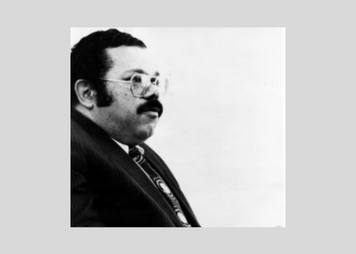
Pioneer Parke Gibson (1930-1979)
 IPR is featuring some of the many Black pioneers who have had an impact on the field of public relations in celebration of Black History Month.D. Parke Gibson was born in 1930 in Seattle, Washington. Gibson graduated from City College and also received an honorary degree of Doctor of Humane Letters from King Memorial College in South Carolina.Gibson began his career as an advertising representative for Interstate Newspapers. In 1956 Gibson became the manager of public relations for Johnson Publishing Co., before joining Sengstacke Publications as promotions director in 1960. Gibson established the first Black-owned PR firm, D. Parke Gibson International, in New York. Among his clients were Brown & Williamson Tobacco Corporation, Miller Brewing Company, and Pan American World Airways.Gibson is also known for his groundbreaking published work on race relations called The Gibson Report, a marketing guide on the Black consumer market.Through his publications and strategic counsel, Gibson was instrumental in getting corporate executives to better understand Title VII of the Civil Rights Act of 1964, which prohibits discrimination by employers on the basis of race, color, religion, sex, or national origin.He also used his publications to point out the economic advantages of corporations developing specific strategies and programs to tap into the influential African-American market. He published “$70 Billion in the Black,” a comprehensive guide to the black consumer market. In 1969, Gibson published “The $30 Billion Negro,” an examination of the strength of the African-American consumer.Gibson made history by paving the way for Black PR professionals and through his insight into the Black consumer market. Gibson died from a heart attack in 1979 at the age of 49.ReferencesCelebrating the Memory of D. Parke GibsonPRsayD. Parke Gibson; Published Guide On the Black Consumer MarketNew York Times
...
IPR is featuring some of the many Black pioneers who have had an impact on the field of public relations in celebration of Black History Month.D. Parke Gibson was born in 1930 in Seattle, Washington. Gibson graduated from City College and also received an honorary degree of Doctor of Humane Letters from King Memorial College in South Carolina.Gibson began his career as an advertising representative for Interstate Newspapers. In 1956 Gibson became the manager of public relations for Johnson Publishing Co., before joining Sengstacke Publications as promotions director in 1960. Gibson established the first Black-owned PR firm, D. Parke Gibson International, in New York. Among his clients were Brown & Williamson Tobacco Corporation, Miller Brewing Company, and Pan American World Airways.Gibson is also known for his groundbreaking published work on race relations called The Gibson Report, a marketing guide on the Black consumer market.Through his publications and strategic counsel, Gibson was instrumental in getting corporate executives to better understand Title VII of the Civil Rights Act of 1964, which prohibits discrimination by employers on the basis of race, color, religion, sex, or national origin.He also used his publications to point out the economic advantages of corporations developing specific strategies and programs to tap into the influential African-American market. He published “$70 Billion in the Black,” a comprehensive guide to the black consumer market. In 1969, Gibson published “The $30 Billion Negro,” an examination of the strength of the African-American consumer.Gibson made history by paving the way for Black PR professionals and through his insight into the Black consumer market. Gibson died from a heart attack in 1979 at the age of 49.ReferencesCelebrating the Memory of D. Parke GibsonPRsayD. Parke Gibson; Published Guide On the Black Consumer MarketNew York Times
...
Read More...
[osd_social_media_sharing]

Most Trusted Brands of 2022
 Morning Consult examined brand trust across industries globally for 2022.A survey of 2,200 U.S. adults, 1,299 South Korean residents, and 1,000 residents each in Canada, China, France, Germany, India, Italy, Japan, and the U.K. was conducted April 8-14, 2022.Key Findings:1.) Household names with local roots helped boost consumer trust.— The No. 1 Most Trusted Brand in 6 of the 10 countries surveyed was established in that country.2.) Small businesses were well-trusted — for the most part.— Across North America and Europe, trust in small businesses was quite high, but there was a sizable trust gap in the Asian countries surveyed.3.) Good value for price and high-quality products/services were crucial for building trust.— International respondents ranked other elements, such as ethical business practices and good customer service, as less important.4.) Poor customer service was a primary driver in breaking trust.— Bad customer service experiences and deteriorating product quality were among the top reasons that global consumers lost trust in brands.Find the original report here.
...
Morning Consult examined brand trust across industries globally for 2022.A survey of 2,200 U.S. adults, 1,299 South Korean residents, and 1,000 residents each in Canada, China, France, Germany, India, Italy, Japan, and the U.K. was conducted April 8-14, 2022.Key Findings:1.) Household names with local roots helped boost consumer trust.— The No. 1 Most Trusted Brand in 6 of the 10 countries surveyed was established in that country.2.) Small businesses were well-trusted — for the most part.— Across North America and Europe, trust in small businesses was quite high, but there was a sizable trust gap in the Asian countries surveyed.3.) Good value for price and high-quality products/services were crucial for building trust.— International respondents ranked other elements, such as ethical business practices and good customer service, as less important.4.) Poor customer service was a primary driver in breaking trust.— Bad customer service experiences and deteriorating product quality were among the top reasons that global consumers lost trust in brands.Find the original report here.
...
Read More...
[osd_social_media_sharing]

Symmetrical Internal Communication Improves Employee Engagement
 This summary is provided by the IPR Organizational Communication Research Center.SummaryScholars have recognized the power of the identity perspective in helping understand employees’ loyalty, motivations, and behaviors. Although organizational identification has received much attention in employee-related investigations, a newer concept, identity fusion, has also recently been examined in organizational contexts. Researchers have proposed the idea of identity fusion as a situation where the self-other barrier is blurred and the group comes to be regarded as functionally equivalent to the personal self, such that the individual’s identity becomes fused with that of the collective or the group. To better understand this construct, the author of the current study examined the antecedents and outcomes of employee-organization identity fusion. Specifically, this study examined how employee-organization identity fusion is related to employees’ perceptions of symmetrical internal communication and the CEO’s authentic leadership and job engagement. Symmetrical internal communication occurs when communicators don’t try to control others’ perceptions but instead communicate honestly and openly.MethodAn online survey was conducted between May and August 2019 and was available to people in the U.S. who were full-time employees at corporations with at least 1,000 employees. Quotas related to gender and ethnicity/race were instituted to ensure that the sample closely resembled the population of the U.S. workforce based. A total of 530 men (53%) and 480 women (47%) comprised the sample. Participant race, length of employment, and seniority were measured, with the majority of participants being white, experienced non-managers between the ages of 35-44 who had been employed between 3-5 years at their company.Key Findings1.) Employees who perceive their leaders to use symmetrical communication tend to see the leaders as more authentic.2.) Symmetrical communication was also tied to increased employee-organization identity fusion.— Consistent internal communication from leadership was critical in cultivating employees’ identity with their organization.3.) Both symmetrical communication and identity fusion were found to have a positive relationship with job engagement.Implications for practiceOrganizations and leaders should 1.) implement changes to their communication style to encourage more back-and-forth symmetrical style communication in order to increase engagement among employees, 2.) understand that CEO perceptions have a strong influence on employee identity and engagement with the organization, and 3.) consider that authentic leadership has value in the workplace and consider strategies to be more genuine and connected to employees.ReferenceKrishna, A. (2022). Employee-Organization Identity Fusion: Connecting Leadership and Symmetrical Internal Communication to Identity-and Engagement-Related Outcomes. International Journal of Business Communication, 23294884221130744.Find the original journal article here.
This summary is provided by the IPR Organizational Communication Research Center.SummaryScholars have recognized the power of the identity perspective in helping understand employees’ loyalty, motivations, and behaviors. Although organizational identification has received much attention in employee-related investigations, a newer concept, identity fusion, has also recently been examined in organizational contexts. Researchers have proposed the idea of identity fusion as a situation where the self-other barrier is blurred and the group comes to be regarded as functionally equivalent to the personal self, such that the individual’s identity becomes fused with that of the collective or the group. To better understand this construct, the author of the current study examined the antecedents and outcomes of employee-organization identity fusion. Specifically, this study examined how employee-organization identity fusion is related to employees’ perceptions of symmetrical internal communication and the CEO’s authentic leadership and job engagement. Symmetrical internal communication occurs when communicators don’t try to control others’ perceptions but instead communicate honestly and openly.MethodAn online survey was conducted between May and August 2019 and was available to people in the U.S. who were full-time employees at corporations with at least 1,000 employees. Quotas related to gender and ethnicity/race were instituted to ensure that the sample closely resembled the population of the U.S. workforce based. A total of 530 men (53%) and 480 women (47%) comprised the sample. Participant race, length of employment, and seniority were measured, with the majority of participants being white, experienced non-managers between the ages of 35-44 who had been employed between 3-5 years at their company.Key Findings1.) Employees who perceive their leaders to use symmetrical communication tend to see the leaders as more authentic.2.) Symmetrical communication was also tied to increased employee-organization identity fusion.— Consistent internal communication from leadership was critical in cultivating employees’ identity with their organization.3.) Both symmetrical communication and identity fusion were found to have a positive relationship with job engagement.Implications for practiceOrganizations and leaders should 1.) implement changes to their communication style to encourage more back-and-forth symmetrical style communication in order to increase engagement among employees, 2.) understand that CEO perceptions have a strong influence on employee identity and engagement with the organization, and 3.) consider that authentic leadership has value in the workplace and consider strategies to be more genuine and connected to employees.ReferenceKrishna, A. (2022). Employee-Organization Identity Fusion: Connecting Leadership and Symmetrical Internal Communication to Identity-and Engagement-Related Outcomes. International Journal of Business Communication, 23294884221130744.Find the original journal article here.
 ...
...
Read More...
[osd_social_media_sharing]

Closing the Digital Divide
 This summary is provided by the IPR Center for Diversity, Equity, and Inclusion. McKinsey & Company examined barriers affecting Black Americans in the digital divide.A literature review was conducted in 2022.Key findings include:1.) The digital divide disproportionately affects Black Americans across adoption, computer ownership, and digital skills.— 50% of Black Americans have the necessary digital skills compared to 77% of White Americans.— 62% of Black Americans have access to broadband internet compared to 77% of White Americans.— 69% of Black Americans own a computer compared to 80% of White Americans.2.) Although Black Americans comprise approximately 13% of all workers, they make up only 7% of digital workers.3.) The majority of Black households directly impacted by the digital divide live in areas with available infrastructure but simply can’t afford broadband service.4.) By gaining a better understanding of the barriers affecting Black communities and engaging communities with a range of broadband and digital-equity stakeholders to address those barriers, public- and private-sector leaders can rise to meet this moment.Find the original report here.
...
This summary is provided by the IPR Center for Diversity, Equity, and Inclusion. McKinsey & Company examined barriers affecting Black Americans in the digital divide.A literature review was conducted in 2022.Key findings include:1.) The digital divide disproportionately affects Black Americans across adoption, computer ownership, and digital skills.— 50% of Black Americans have the necessary digital skills compared to 77% of White Americans.— 62% of Black Americans have access to broadband internet compared to 77% of White Americans.— 69% of Black Americans own a computer compared to 80% of White Americans.2.) Although Black Americans comprise approximately 13% of all workers, they make up only 7% of digital workers.3.) The majority of Black households directly impacted by the digital divide live in areas with available infrastructure but simply can’t afford broadband service.4.) By gaining a better understanding of the barriers affecting Black communities and engaging communities with a range of broadband and digital-equity stakeholders to address those barriers, public- and private-sector leaders can rise to meet this moment.Find the original report here.
...
Read More...
[osd_social_media_sharing]

2023 Global Human Capital Trends
 Deloitte examined the issues employees are facing today and how they contribute value to the workplace.A survey of 10,000 business and HR leaders was conducted as well as interviews with executives.Key Findings:1.) Workers that said they co-created with their employees were 1.8 times more likely to have a highly engaged workforce, 2x more likely to be innovative, and 1.6 times more likely than their peers to anticipate and respond to change effectively.2.) 19% of organizations said they’re very ready for employee data ownership.— Beyond ownership alone, conversations about what is workforce data, the transparency of that data, and the mutual benefits of data-driven insights are on the rise as data is becoming a new “currency.”3.) Worker agency might have previously been seen as a threat, but leading organizations are finding ways to leverage worker motivation and cocreation to drive mutual and elevated benefits.4.) Many organizations are still stuck in old patterns of talent access and management because they’re not giving workers a say in where, how, and for whom they work.Organizations that adapt their strategies and practices to fit the real-world talent pool will gain access to skills and experiences to accelerate growth, innovation, and agility.Find the original report here.
...
Deloitte examined the issues employees are facing today and how they contribute value to the workplace.A survey of 10,000 business and HR leaders was conducted as well as interviews with executives.Key Findings:1.) Workers that said they co-created with their employees were 1.8 times more likely to have a highly engaged workforce, 2x more likely to be innovative, and 1.6 times more likely than their peers to anticipate and respond to change effectively.2.) 19% of organizations said they’re very ready for employee data ownership.— Beyond ownership alone, conversations about what is workforce data, the transparency of that data, and the mutual benefits of data-driven insights are on the rise as data is becoming a new “currency.”3.) Worker agency might have previously been seen as a threat, but leading organizations are finding ways to leverage worker motivation and cocreation to drive mutual and elevated benefits.4.) Many organizations are still stuck in old patterns of talent access and management because they’re not giving workers a say in where, how, and for whom they work.Organizations that adapt their strategies and practices to fit the real-world talent pool will gain access to skills and experiences to accelerate growth, innovation, and agility.Find the original report here.
...
Read More...
[osd_social_media_sharing]

How COVID-19 Changed Leadership in Asia-Pacific
Korn Ferry explored how corporate leaders in the Asia-Pacific (APAC) have evolved during the COVID-19 crisis.Interviews were conducted with over 70 CEOs from across the APAC region from Sept. 2021 – July 2022.Key Findings:1.) The most common themes from the conversations with CEOs were about:— Making bold decisions quickly— Communicating more often and with more honesty— Leading with humility and empathy2.) 23% of the CEOs talked about how their mindset and view of the world evolved during the COVID-19 outbreak, with some leaders stating they took the time to ask themselves fundamental existential questions.3.) Of the 41 CEOs who spoke about leading through the pandemic, 17% explicitly stated that they have expanded their leadership repertoire during the crisis.4.) Of the 53 CEOs who discussed lessons from the pandemic, nearly 23% spoke about digital transformation—one of the most significant changes seen by companies during the pandemic.— Companies lagging in enhancing their digital profile soon found themselves scrambling to operate in a digital-only world.Find the original report here.
...
Read More...
[osd_social_media_sharing]

2023 CxO Sustainability Report
 This summary is provided by the IPR ESG and Purpose Research Library.Deloitte examined how organizations and the global economy can continue to grow while reaching climate goals and reducing greenhouse gas emissions.A survey of 2,016 CxOs (C-level executives) was conducted by KS&R Inc. and Deloitte from Sept. – Oct. 2022.Key findings include:1.) 61% of C-level executives said climate change would have a “high” or “very high” impact on their organization’s strategy and operations over the next three years.2.) 75% as CxOs said their organizations had increased their sustainability investments over the past year, nearly 20% of whom said they’ve increased investments significantly.3.) More than half of CxOs said employee activism on climate matters has led their organizations to increase sustainability actions over the last year—24% of which said it led to a significant increase.4.) While companies are taking action, it is less likely they are implementing actions that demonstrate they have embedded climate considerations into their cultures to effect meaningful transformations.— Only 29% of CxOs said they believe the private sector is “very” serious about addressing climate change.Find the original report here.
...
This summary is provided by the IPR ESG and Purpose Research Library.Deloitte examined how organizations and the global economy can continue to grow while reaching climate goals and reducing greenhouse gas emissions.A survey of 2,016 CxOs (C-level executives) was conducted by KS&R Inc. and Deloitte from Sept. – Oct. 2022.Key findings include:1.) 61% of C-level executives said climate change would have a “high” or “very high” impact on their organization’s strategy and operations over the next three years.2.) 75% as CxOs said their organizations had increased their sustainability investments over the past year, nearly 20% of whom said they’ve increased investments significantly.3.) More than half of CxOs said employee activism on climate matters has led their organizations to increase sustainability actions over the last year—24% of which said it led to a significant increase.4.) While companies are taking action, it is less likely they are implementing actions that demonstrate they have embedded climate considerations into their cultures to effect meaningful transformations.— Only 29% of CxOs said they believe the private sector is “very” serious about addressing climate change.Find the original report here.
...
Read More...
[osd_social_media_sharing]

Navigating Water Cooler Talks Without the Water Cooler: Uncertainty and Information Seeking During Remote Socialization
 This summary is provided by the IPR Organizational Communication Research Center based on the original study.Dr. DaJung Woo and colleagues examined how remote workers communicate with one another to navigate uncertainty in the workplace. This is particularly relevant considering COVID-19 and the increasing rise of remote employees who may not have pre-established relationships that were forged in person before beginning their remote tenure. This type of newcomer socialization occurs so employees can learn more about their role in the organization and accrue organizational knowledge, especially in light of organizational turbulence or unknowns. The authors sought to explore how newcomers engage in information-seeking behaviors remotely to manage or mitigate emotional uncertainty, particularly during the early onset of the pandemic.In order to explore this issue, in-depth interviews with 30 participants were conducted with individuals who began new positions between late February through November of 2020.Key Findings1.) Employees who sought information were mostly curious and reported uncertainty regarding workplace relationships and the hesitation to reach out to coworkers who do not know them personally for organizational assistance.2.) Employees working remotely mostly organized virtual small groups or talks to get to know one another.— This was done intentionally and proactively to mimic casual conversations.3.) Employees also engaged in unsanctioned in-person meetups to get to know their fellow coworkers.4.) Participants in the interviews reported feeling uncertain about their roles and organizational norms and sought information and relationships with fellow employees to help reduce that uncertainty.5.) Participants reported success in asking their coworkers virtually for help in a direct manner to help better understand their role or be coached through a challenge.— Impersonal digital tools, such as social media or intranets, also provided an additional way to seek information and gain role-specific and organizational knowledge.Implications for PracticeEmployers should remember remote employees need additional up-front information about the organization as well as increased access to social and relational opportunities with their peers to assist with alleviating their uncertainty, increasing the efficacy of onboarding, and increasing feelings of belonging. Additionally, employers should consider proactively maintaining and creating digital spaces such as digital intranets or online social networks where employees can casually converse with one another and get a stronger feel for the organizational culture as well as become familiar with members of the organization.Woo, D., Endacott, C. G., & Myers, K. K. (2022). Navigating Water Cooler Talks Without the Water Cooler: Uncertainty and Information Seeking During Remote Socialization. Management Communication Quarterly, 0(0). https://doi.org/10.1177/08933189221105916
...
This summary is provided by the IPR Organizational Communication Research Center based on the original study.Dr. DaJung Woo and colleagues examined how remote workers communicate with one another to navigate uncertainty in the workplace. This is particularly relevant considering COVID-19 and the increasing rise of remote employees who may not have pre-established relationships that were forged in person before beginning their remote tenure. This type of newcomer socialization occurs so employees can learn more about their role in the organization and accrue organizational knowledge, especially in light of organizational turbulence or unknowns. The authors sought to explore how newcomers engage in information-seeking behaviors remotely to manage or mitigate emotional uncertainty, particularly during the early onset of the pandemic.In order to explore this issue, in-depth interviews with 30 participants were conducted with individuals who began new positions between late February through November of 2020.Key Findings1.) Employees who sought information were mostly curious and reported uncertainty regarding workplace relationships and the hesitation to reach out to coworkers who do not know them personally for organizational assistance.2.) Employees working remotely mostly organized virtual small groups or talks to get to know one another.— This was done intentionally and proactively to mimic casual conversations.3.) Employees also engaged in unsanctioned in-person meetups to get to know their fellow coworkers.4.) Participants in the interviews reported feeling uncertain about their roles and organizational norms and sought information and relationships with fellow employees to help reduce that uncertainty.5.) Participants reported success in asking their coworkers virtually for help in a direct manner to help better understand their role or be coached through a challenge.— Impersonal digital tools, such as social media or intranets, also provided an additional way to seek information and gain role-specific and organizational knowledge.Implications for PracticeEmployers should remember remote employees need additional up-front information about the organization as well as increased access to social and relational opportunities with their peers to assist with alleviating their uncertainty, increasing the efficacy of onboarding, and increasing feelings of belonging. Additionally, employers should consider proactively maintaining and creating digital spaces such as digital intranets or online social networks where employees can casually converse with one another and get a stronger feel for the organizational culture as well as become familiar with members of the organization.Woo, D., Endacott, C. G., & Myers, K. K. (2022). Navigating Water Cooler Talks Without the Water Cooler: Uncertainty and Information Seeking During Remote Socialization. Management Communication Quarterly, 0(0). https://doi.org/10.1177/08933189221105916
...
Read More...
[osd_social_media_sharing]

Workplace Chatter Can Promote Employee Advocacy for COVID-19 Vaccination
 This summary is provided by the IPR Organizational Communication Research Center based on the original study.Dr. Weiting Tao and colleagues examined how workplace dialogic communication about COVID-19 vaccination influenced employees’ intention to advocate for the vaccine to people in their personal and professional networks. Workplace dialogic communication requires open exchange of information, thoughts, and feelings between employees and managers. To be dialogic, employees and managers show mutual respect and understanding of each other’s viewpoints and engage in open, honest, and ethical communication. A survey of 505 full-time employees working across various industries in the United States was conducted in July 2021. Key Findings— The more dialogic an organization was in communicating COVID-19 vaccination with its employees, the more supportive the organization was perceived in supporting employees’ vaccination and related concerns.— The more dialogic an organization was in communicating COVID-19 vaccination with its employees, the more positive emotions and less negative emotions that the employee felt about getting vaccinated. — Perceived organizational support for employee vaccination was found to promote positive emotions and reduce negative emotions among employees regarding vaccination.— An increase in positive emotions and a decrease in negative emotions about COVID-19 vaccination likely enhanced employees’ intention to advocate for the vaccination within and outside their workplace. Implications for PracticeOrganizations are encouraged to engage in open, honest, and ethical dialogues and conversations with employees when making decisions and implementing policies related to COVID-19 vaccination. They should encourage employees to freely voice their thoughts and concerns regarding the vaccination and actively respond to and address those diverse viewpoints with respect and empathy. Such dialogic communication is likely helpful in motivating employees to be ambassadors and advocates for their organizations’ vaccination initiatives and thus promote workplace health. Learn how to practice workplace dialogic communication to promote employee vaccine advocacy during pandemics Tao, W., Lee, Y., Li, J. Y., & He, M. (2022). How dialogic vaccine communication in the workplace facilitates employee advocacy for COVID-19 vaccine uptake. Journal of Public Relations Research. Advanced online publication. https://doi.org/10.1080/1062726X.2022.2150624
...
This summary is provided by the IPR Organizational Communication Research Center based on the original study.Dr. Weiting Tao and colleagues examined how workplace dialogic communication about COVID-19 vaccination influenced employees’ intention to advocate for the vaccine to people in their personal and professional networks. Workplace dialogic communication requires open exchange of information, thoughts, and feelings between employees and managers. To be dialogic, employees and managers show mutual respect and understanding of each other’s viewpoints and engage in open, honest, and ethical communication. A survey of 505 full-time employees working across various industries in the United States was conducted in July 2021. Key Findings— The more dialogic an organization was in communicating COVID-19 vaccination with its employees, the more supportive the organization was perceived in supporting employees’ vaccination and related concerns.— The more dialogic an organization was in communicating COVID-19 vaccination with its employees, the more positive emotions and less negative emotions that the employee felt about getting vaccinated. — Perceived organizational support for employee vaccination was found to promote positive emotions and reduce negative emotions among employees regarding vaccination.— An increase in positive emotions and a decrease in negative emotions about COVID-19 vaccination likely enhanced employees’ intention to advocate for the vaccination within and outside their workplace. Implications for PracticeOrganizations are encouraged to engage in open, honest, and ethical dialogues and conversations with employees when making decisions and implementing policies related to COVID-19 vaccination. They should encourage employees to freely voice their thoughts and concerns regarding the vaccination and actively respond to and address those diverse viewpoints with respect and empathy. Such dialogic communication is likely helpful in motivating employees to be ambassadors and advocates for their organizations’ vaccination initiatives and thus promote workplace health. Learn how to practice workplace dialogic communication to promote employee vaccine advocacy during pandemics Tao, W., Lee, Y., Li, J. Y., & He, M. (2022). How dialogic vaccine communication in the workplace facilitates employee advocacy for COVID-19 vaccine uptake. Journal of Public Relations Research. Advanced online publication. https://doi.org/10.1080/1062726X.2022.2150624
...
Read More...
[osd_social_media_sharing]

Small Businesses Most Trusted to Make Changes in Advancing Equity
 This summary is provided by the IPR Center for Diversity, Equity, and InclusionThe Harris Poll and U.S. News and World Report examined Americans’ views on equity, discrimination, and how businesses have addressed these issues.An online survey of 4,085 U.S. adults was conducted from Oct. 21-30, 2022.Key findings include:— 64% of all adults disagreed with the statement that “workplace discrimination is not a problem in the U.S.”— Only about one-fifth to one-quarter of respondents thought companies had put in a “very good effort” over the past two years to advance racial equity through increasing awareness about racial bias and microaggressions, recruiting and retaining minority talent, minimizing pay disparities, or increasing racial diversity in managerial or other leadership roles.— The institutions most trusted to make changes in advancing equity were small businesses (76%), nonprofit organizations (72%), educational entities (66%), and healthcare entities (63%).Learn how Americans expect businesses to help advance equity
...
This summary is provided by the IPR Center for Diversity, Equity, and InclusionThe Harris Poll and U.S. News and World Report examined Americans’ views on equity, discrimination, and how businesses have addressed these issues.An online survey of 4,085 U.S. adults was conducted from Oct. 21-30, 2022.Key findings include:— 64% of all adults disagreed with the statement that “workplace discrimination is not a problem in the U.S.”— Only about one-fifth to one-quarter of respondents thought companies had put in a “very good effort” over the past two years to advance racial equity through increasing awareness about racial bias and microaggressions, recruiting and retaining minority talent, minimizing pay disparities, or increasing racial diversity in managerial or other leadership roles.— The institutions most trusted to make changes in advancing equity were small businesses (76%), nonprofit organizations (72%), educational entities (66%), and healthcare entities (63%).Learn how Americans expect businesses to help advance equity
...
Read More...
[osd_social_media_sharing]

 IPR is featuring some of the many Black pioneers who have had an impact on the field of public relations in celebration of Black History Month.D. Parke Gibson was born in 1930 in Seattle, Washington. Gibson graduated from City College and also received an honorary degree of Doctor of Humane Letters from King Memorial College in South Carolina.Gibson began his career as an advertising representative for Interstate Newspapers. In 1956 Gibson became the manager of public relations for Johnson Publishing Co., before joining Sengstacke Publications as promotions director in 1960. Gibson established the first Black-owned PR firm, D. Parke Gibson International, in New York. Among his clients were Brown & Williamson Tobacco Corporation, Miller Brewing Company, and Pan American World Airways.Gibson is also known for his groundbreaking published work on race relations called The Gibson Report, a marketing guide on the Black consumer market.Through his publications and strategic counsel, Gibson was instrumental in getting corporate executives to better understand Title VII of the Civil Rights Act of 1964, which prohibits discrimination by employers on the basis of race, color, religion, sex, or national origin.He also used his publications to point out the economic advantages of corporations developing specific strategies and programs to tap into the influential African-American market. He published “$70 Billion in the Black,” a comprehensive guide to the black consumer market. In 1969, Gibson published “The $30 Billion Negro,” an examination of the strength of the African-American consumer.Gibson made history by paving the way for Black PR professionals and through his insight into the Black consumer market. Gibson died from a heart attack in 1979 at the age of 49.ReferencesCelebrating the Memory of D. Parke GibsonPRsayD. Parke Gibson; Published Guide On the Black Consumer MarketNew York Times
...
IPR is featuring some of the many Black pioneers who have had an impact on the field of public relations in celebration of Black History Month.D. Parke Gibson was born in 1930 in Seattle, Washington. Gibson graduated from City College and also received an honorary degree of Doctor of Humane Letters from King Memorial College in South Carolina.Gibson began his career as an advertising representative for Interstate Newspapers. In 1956 Gibson became the manager of public relations for Johnson Publishing Co., before joining Sengstacke Publications as promotions director in 1960. Gibson established the first Black-owned PR firm, D. Parke Gibson International, in New York. Among his clients were Brown & Williamson Tobacco Corporation, Miller Brewing Company, and Pan American World Airways.Gibson is also known for his groundbreaking published work on race relations called The Gibson Report, a marketing guide on the Black consumer market.Through his publications and strategic counsel, Gibson was instrumental in getting corporate executives to better understand Title VII of the Civil Rights Act of 1964, which prohibits discrimination by employers on the basis of race, color, religion, sex, or national origin.He also used his publications to point out the economic advantages of corporations developing specific strategies and programs to tap into the influential African-American market. He published “$70 Billion in the Black,” a comprehensive guide to the black consumer market. In 1969, Gibson published “The $30 Billion Negro,” an examination of the strength of the African-American consumer.Gibson made history by paving the way for Black PR professionals and through his insight into the Black consumer market. Gibson died from a heart attack in 1979 at the age of 49.ReferencesCelebrating the Memory of D. Parke GibsonPRsayD. Parke Gibson; Published Guide On the Black Consumer MarketNew York Times
... 
 Morning Consult examined brand trust across industries globally for 2022.A survey of 2,200 U.S. adults, 1,299 South Korean residents, and 1,000 residents each in Canada, China, France, Germany, India, Italy, Japan, and the U.K. was conducted April 8-14, 2022.Key Findings:1.) Household names with local roots helped boost consumer trust.— The No. 1 Most Trusted Brand in 6 of the 10 countries surveyed was established in that country.2.) Small businesses were well-trusted — for the most part.— Across North America and Europe, trust in small businesses was quite high, but there was a sizable trust gap in the Asian countries surveyed.3.) Good value for price and high-quality products/services were crucial for building trust.— International respondents ranked other elements, such as ethical business practices and good customer service, as less important.4.) Poor customer service was a primary driver in breaking trust.— Bad customer service experiences and deteriorating product quality were among the top reasons that global consumers lost trust in brands.Find the original report here.
...
Morning Consult examined brand trust across industries globally for 2022.A survey of 2,200 U.S. adults, 1,299 South Korean residents, and 1,000 residents each in Canada, China, France, Germany, India, Italy, Japan, and the U.K. was conducted April 8-14, 2022.Key Findings:1.) Household names with local roots helped boost consumer trust.— The No. 1 Most Trusted Brand in 6 of the 10 countries surveyed was established in that country.2.) Small businesses were well-trusted — for the most part.— Across North America and Europe, trust in small businesses was quite high, but there was a sizable trust gap in the Asian countries surveyed.3.) Good value for price and high-quality products/services were crucial for building trust.— International respondents ranked other elements, such as ethical business practices and good customer service, as less important.4.) Poor customer service was a primary driver in breaking trust.— Bad customer service experiences and deteriorating product quality were among the top reasons that global consumers lost trust in brands.Find the original report here.
... 


 Deloitte examined the issues employees are facing today and how they contribute value to the workplace.A survey of 10,000 business and HR leaders was conducted as well as interviews with executives.Key Findings:1.) Workers that said they co-created with their employees were 1.8 times more likely to have a highly engaged workforce, 2x more likely to be innovative, and 1.6 times more likely than their peers to anticipate and respond to change effectively.2.) 19% of organizations said they’re very ready for employee data ownership.— Beyond ownership alone, conversations about what is workforce data, the transparency of that data, and the mutual benefits of data-driven insights are on the rise as data is becoming a new “currency.”3.) Worker agency might have previously been seen as a threat, but leading organizations are finding ways to leverage worker motivation and cocreation to drive mutual and elevated benefits.4.) Many organizations are still stuck in old patterns of talent access and management because they’re not giving workers a say in where, how, and for whom they work.Organizations that adapt their strategies and practices to fit the real-world talent pool will gain access to skills and experiences to accelerate growth, innovation, and agility.Find the original report here.
...
Deloitte examined the issues employees are facing today and how they contribute value to the workplace.A survey of 10,000 business and HR leaders was conducted as well as interviews with executives.Key Findings:1.) Workers that said they co-created with their employees were 1.8 times more likely to have a highly engaged workforce, 2x more likely to be innovative, and 1.6 times more likely than their peers to anticipate and respond to change effectively.2.) 19% of organizations said they’re very ready for employee data ownership.— Beyond ownership alone, conversations about what is workforce data, the transparency of that data, and the mutual benefits of data-driven insights are on the rise as data is becoming a new “currency.”3.) Worker agency might have previously been seen as a threat, but leading organizations are finding ways to leverage worker motivation and cocreation to drive mutual and elevated benefits.4.) Many organizations are still stuck in old patterns of talent access and management because they’re not giving workers a say in where, how, and for whom they work.Organizations that adapt their strategies and practices to fit the real-world talent pool will gain access to skills and experiences to accelerate growth, innovation, and agility.Find the original report here.
... 


 This summary is provided by the IPR Organizational Communication Research Center based on the original study.Dr. DaJung Woo and colleagues examined how remote workers communicate with one another to navigate uncertainty in the workplace. This is particularly relevant considering COVID-19 and the increasing rise of remote employees who may not have pre-established relationships that were forged in person before beginning their remote tenure. This type of newcomer socialization occurs so employees can learn more about their role in the organization and accrue organizational knowledge, especially in light of organizational turbulence or unknowns. The authors sought to explore how newcomers engage in information-seeking behaviors remotely to manage or mitigate emotional uncertainty, particularly during the early onset of the pandemic.In order to explore this issue, in-depth interviews with 30 participants were conducted with individuals who began new positions between late February through November of 2020.Key Findings1.) Employees who sought information were mostly curious and reported uncertainty regarding workplace relationships and the hesitation to reach out to coworkers who do not know them personally for organizational assistance.2.) Employees working remotely mostly organized virtual small groups or talks to get to know one another.— This was done intentionally and proactively to mimic casual conversations.3.) Employees also engaged in unsanctioned in-person meetups to get to know their fellow coworkers.4.) Participants in the interviews reported feeling uncertain about their roles and organizational norms and sought information and relationships with fellow employees to help reduce that uncertainty.5.) Participants reported success in asking their coworkers virtually for help in a direct manner to help better understand their role or be coached through a challenge.— Impersonal digital tools, such as social media or intranets, also provided an additional way to seek information and gain role-specific and organizational knowledge.Implications for PracticeEmployers should remember remote employees need additional up-front information about the organization as well as increased access to social and relational opportunities with their peers to assist with alleviating their uncertainty, increasing the efficacy of onboarding, and increasing feelings of belonging. Additionally, employers should consider proactively maintaining and creating digital spaces such as digital intranets or online social networks where employees can casually converse with one another and get a stronger feel for the organizational culture as well as become familiar with members of the organization.Woo, D., Endacott, C. G., & Myers, K. K. (2022). Navigating Water Cooler Talks Without the Water Cooler: Uncertainty and Information Seeking During Remote Socialization. Management Communication Quarterly, 0(0). https://doi.org/10.1177/08933189221105916
...
This summary is provided by the IPR Organizational Communication Research Center based on the original study.Dr. DaJung Woo and colleagues examined how remote workers communicate with one another to navigate uncertainty in the workplace. This is particularly relevant considering COVID-19 and the increasing rise of remote employees who may not have pre-established relationships that were forged in person before beginning their remote tenure. This type of newcomer socialization occurs so employees can learn more about their role in the organization and accrue organizational knowledge, especially in light of organizational turbulence or unknowns. The authors sought to explore how newcomers engage in information-seeking behaviors remotely to manage or mitigate emotional uncertainty, particularly during the early onset of the pandemic.In order to explore this issue, in-depth interviews with 30 participants were conducted with individuals who began new positions between late February through November of 2020.Key Findings1.) Employees who sought information were mostly curious and reported uncertainty regarding workplace relationships and the hesitation to reach out to coworkers who do not know them personally for organizational assistance.2.) Employees working remotely mostly organized virtual small groups or talks to get to know one another.— This was done intentionally and proactively to mimic casual conversations.3.) Employees also engaged in unsanctioned in-person meetups to get to know their fellow coworkers.4.) Participants in the interviews reported feeling uncertain about their roles and organizational norms and sought information and relationships with fellow employees to help reduce that uncertainty.5.) Participants reported success in asking their coworkers virtually for help in a direct manner to help better understand their role or be coached through a challenge.— Impersonal digital tools, such as social media or intranets, also provided an additional way to seek information and gain role-specific and organizational knowledge.Implications for PracticeEmployers should remember remote employees need additional up-front information about the organization as well as increased access to social and relational opportunities with their peers to assist with alleviating their uncertainty, increasing the efficacy of onboarding, and increasing feelings of belonging. Additionally, employers should consider proactively maintaining and creating digital spaces such as digital intranets or online social networks where employees can casually converse with one another and get a stronger feel for the organizational culture as well as become familiar with members of the organization.Woo, D., Endacott, C. G., & Myers, K. K. (2022). Navigating Water Cooler Talks Without the Water Cooler: Uncertainty and Information Seeking During Remote Socialization. Management Communication Quarterly, 0(0). https://doi.org/10.1177/08933189221105916
... 
